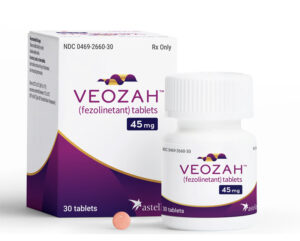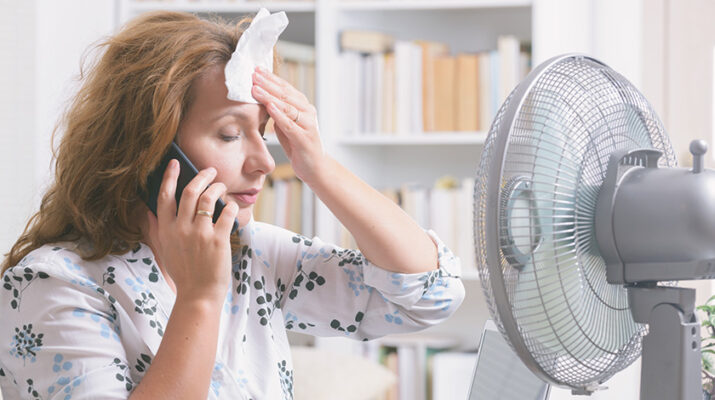By Deborah Jeanne Sergeant
 As of June 1, the FDA approved the first drug in its class to treat menopausal hot flashes. Veozah (fezolinetant) is an oral medication indicated for moderate to severe hot flashes.
As of June 1, the FDA approved the first drug in its class to treat menopausal hot flashes. Veozah (fezolinetant) is an oral medication indicated for moderate to severe hot flashes.
If Veozah is classified as a “tier 2” medication, most insurance will cover it with a moderate co-pay for patients.
Barb Madison, pharmacist at Parker Pharmacy in Buffalo, thinks that insurance companies could classify it “more as a cosmetic thing than quality of life” and not even cover it.
That would mean that it could cost as much as $660 out of pocket to quell hot flashes and night sweats. But for those who could afford it, the cost may be worth it.
“It’s a quality of life issue,” said Michelle Chin, a physician with Rochester Regional Health. “Some women have terrible hot flashes and are up all night. It’s embarrassing. It’s not fun when work colleagues say, ‘Are you OK?’ because your face is flushed. It’s so exciting to launch this drug. Women with hot flashes and night sweats have been suffering quite a bit.”
Although hormone therapy is well tolerated for some women, others do not want or cannot have it. Hormone therapy has been linked with an increased risk of breast cancer and cardiovascular disease.
Colleague Olivia Higgins, physician, added that the introduction of Veozah “shows how there is more discussion in the media and among people about the importance of how hot flashes interrupt quality of life. More research is going into how to improve this for women. There are multiple options beyond hormonal therapy.”
Higgins works at Rochester Regional Health. She likes the opportunity to offer more choices to patients, especially one that is so effective as Veozah.
Chin said that by week one, those taking Veozah experience a 50% reduction of hot flashes and that continues to improve by week 12. The diversity of the trial, both in the ethnicity and BMI of the participants, bodes for a much broader efficacy than trials that include fewer types of women.
“After 12 weeks, the women who’d been on placebo switched to Veozah and they also had the benefit of reducing their symptoms,” Chin said. “The placebo effect is 30% of patients seeing a difference. I like the crossover study.”
Higgins encourages anyone interested in Veozah to discuss their health issues and other medications with a healthcare provider to determine what is best for them.
Treating hot flashes is “definitely a big part of my practice,” said Carol Peterson, physician and assistant professor at URMC. “Some people tolerate them nicely, but about 40% of women find them very bothersome.”
She said that Veozah is a different class of medication than previous drugs used to treat hot flashes. It works by interrupting the pathways in the brain related to hot flashes, which is a different mechanism for reducing hot flashes.
“We have tried many other options in the past,” Peterson said. “Other drugs are marginally helpful. Antidepressants can help, and depression is often a side effect of menopause. This seems to be the most effective with the least side effects. It seems to be very effective for women who don’t want estrogen.”
Veozah is contraindicated for women with liver disease or liver problems. Patients are monitored for liver function.
Sleepiness is another side effect. Many menopausal women struggle with sleep. Some women experience nausea and gastrointestinal upset.

